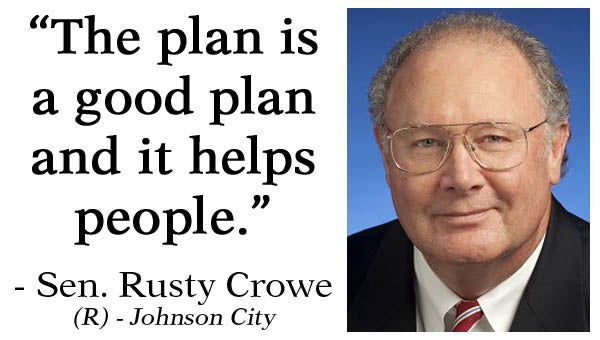Committee approves Insure Tennessee
Published 9:42 am Friday, March 27, 2015
A measure that would expand Medicaid health coverage to low-income Tennesseans is getting a second chance after it failed to pass during a special legislative session last month.
On Wednesday evening, the Tennessee Senate Health and Welfare Committee approved Insure Tennessee, Gov. Bill Haslam’s health insurance plan. The bill died in the same committee last month.
The Senate Resolution would authorize Haslam to proceed with plans to use federal funding to help working people buy into employer-sponsored health insurance plans and would expand Medicate eligibility to more low-income Tennesseeans. The resolution passed the committee on a vote of 6-2-1.
Those voting in favor of the resolution were Committee Chairman Rusty Crowe, R-Johnson City, and Sens. Richard Briggs, R-Knoxville; Ed Jackson, R-Jackson; Becky Massey, R-Knoxville; Doug Overbey, R-Maryville; and Jeff Yarbro, D-Nashville. Sens. Randy McNally, R-Oak Ridge, and Bo Watson, R-Hixon, voted against the proposal, while Sen. Joey Hensley, R-Hohenwald, abstained.
When the proposal came to the committee in February, Crowe voted against the measure, citing a lack of commitment from the federal government that funding for the expansion would remain available. Part of that problem was a procedural matter, Crowe said.
“I found out we can’t get anything back in writing from the federal government until we’ve sent our request for a waiver in,” he said. “The problem was kind of a Catch 22 — the governor can’t get a response until he sends the plan to the feds, but he can’t send it until the Legislature authorizes him to send it.”
Concerns that the state would not have control over the program once the federal government stepped in were also part of the reason Crowe voted against the plan initially.
“I was concerned that once we passed it we would lose control if the federal government decided they wanted to do things their own way instead of the plan we approved,” Crowe told the Elizabethton Star Thursday. “I requested verification this week, from Darin Gordon, our Medicaid director and from the governor, that first Darin and the governor do have the authority to deny or reject any response that does not substantively match our plan, and secondly, that I have the governor’s word that he would, in fact, reject any plan that materially differed from the one we had debated and passed.”
Before the debate in the Health and Welfare Committee, Crowe said he received confirmation from Gordon that should the federal government send back a plan that differed from what the state approved Haslam would reject the plan and bring the matter back to the legislature.
Prior to coming to a vote by the full committee, Crowe sent the proposal to a sub-committee for TennCare Oversight and tasked them with reviewing the plan and making recommendations to the full committee.
“They came back to me with an amendment making 3 changes to the bill,” Crowe said.
The first amendment provides a six-month “lockout” on coverage for anyone who fails to pay their premiums for two consecutive months. A second amendment to the proposal requires a memorandum of understanding executed by Haslam in writing saying the Insure Tennessee plan will not be implemented until the U.S. Supreme Court decides the case of King vs. Burwell, which is a legal challenge to the Affordable Care Act which is currently pending. The third amendment dictates that until the Governor receives written confirmation from the Centers for Medicare and Medicaid Services the state as an opt out provision that the state may exercise if the program develops expenses to the state beyond those covered by the federal funds and the hospital assessment funds.
“Those three amendments plus the Governors personal word to me as chair of the Senate Health Committee as well as the word of Darin Gordon, our Medicaid Chief, that they will not move forward if the Federal response to our plan is substantively different from that we have submitted gave me the assurance that I needed to vote to send the Insure Tennessee plan on to the Commerce Committee, where next week it will most probably face an even rougher debate,” Crowe said.
When the plan was first introduced, Crowe said he had not problems with the plan itself but rather concerns with its implementation.
“The plan is a good plan and it helps people,” he said. “I think the plan reflects for the first time a move away from an entitlement mentality to one of personal responsibility wherein patients that make good, prudent choices for their healthcare and the healthcare of their families will be rewarded and earn dollars for their co-pays and premiums through their health savings accounts.”
If the proposal passes the Senate Commerce and Labor Committee, it would then go to Senate Finance Committee and on to similar committees in the House.






